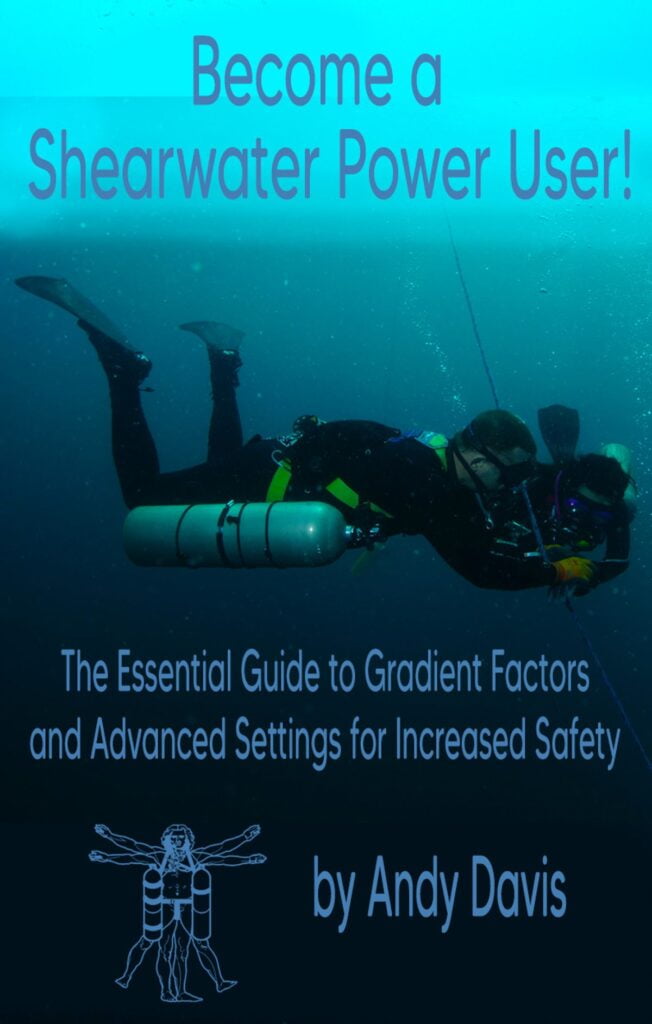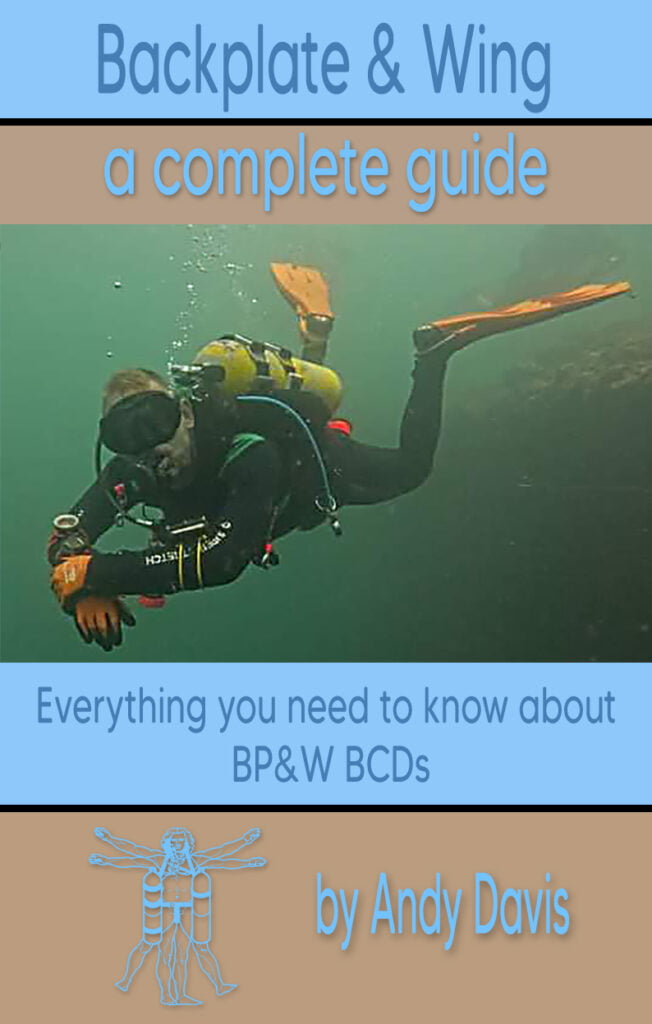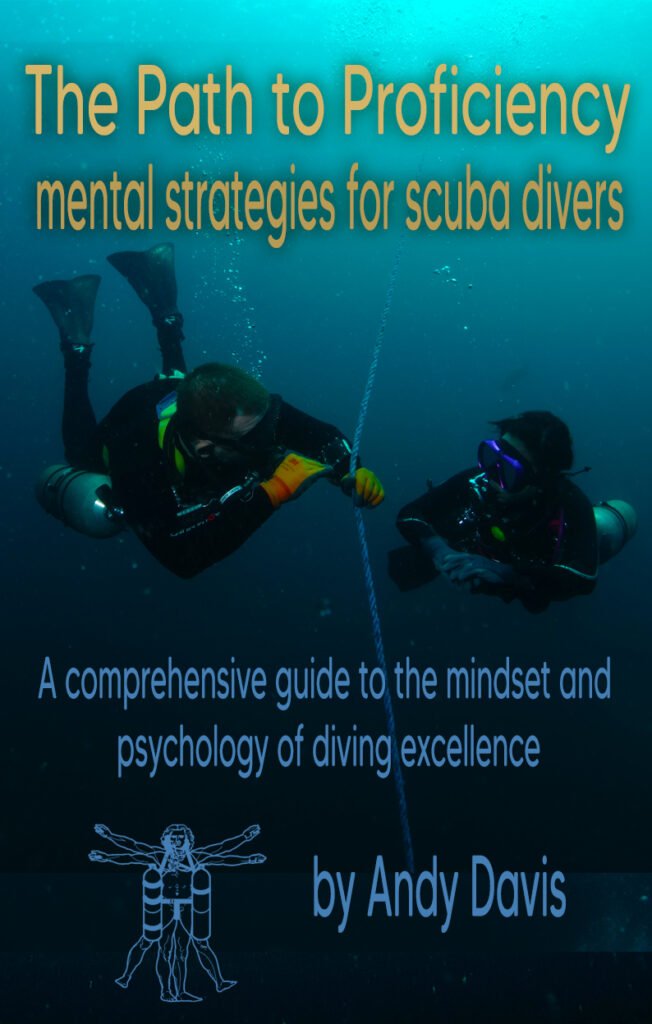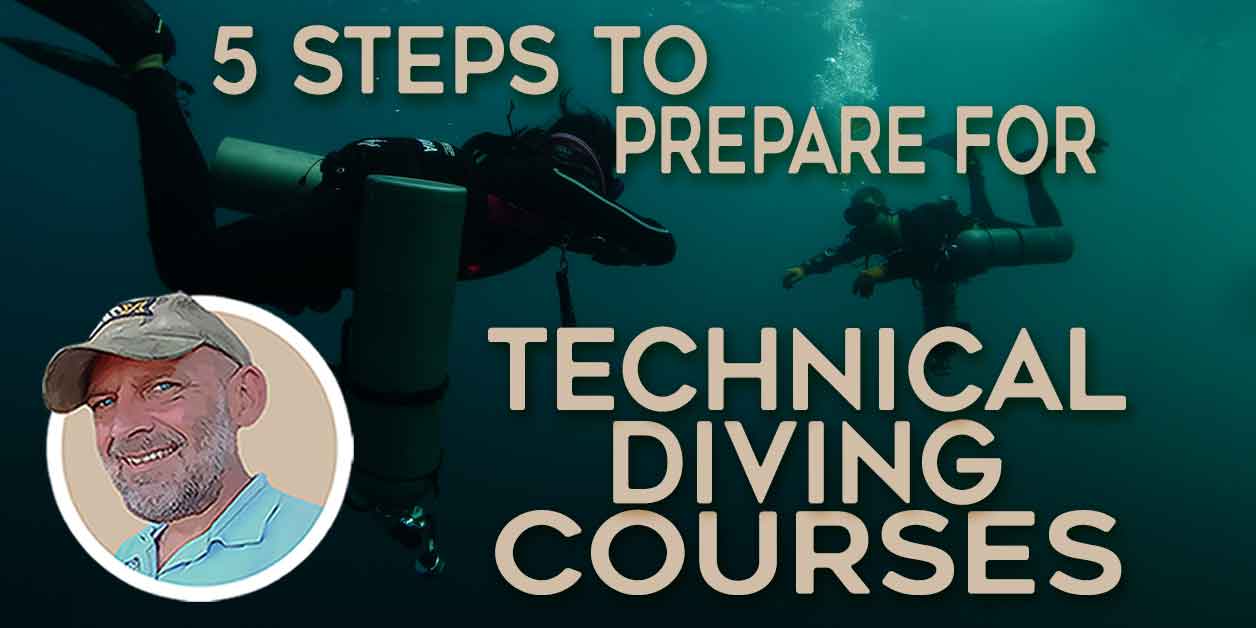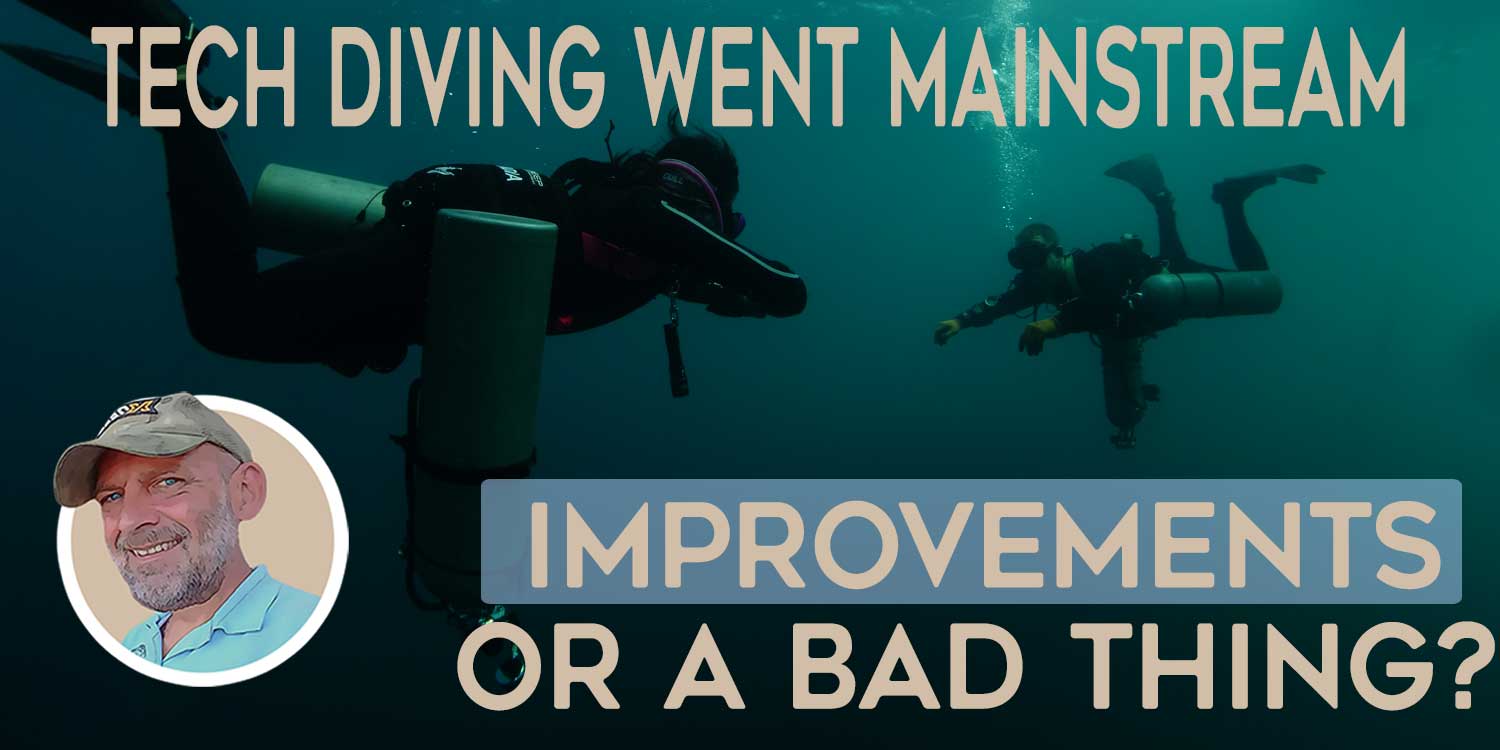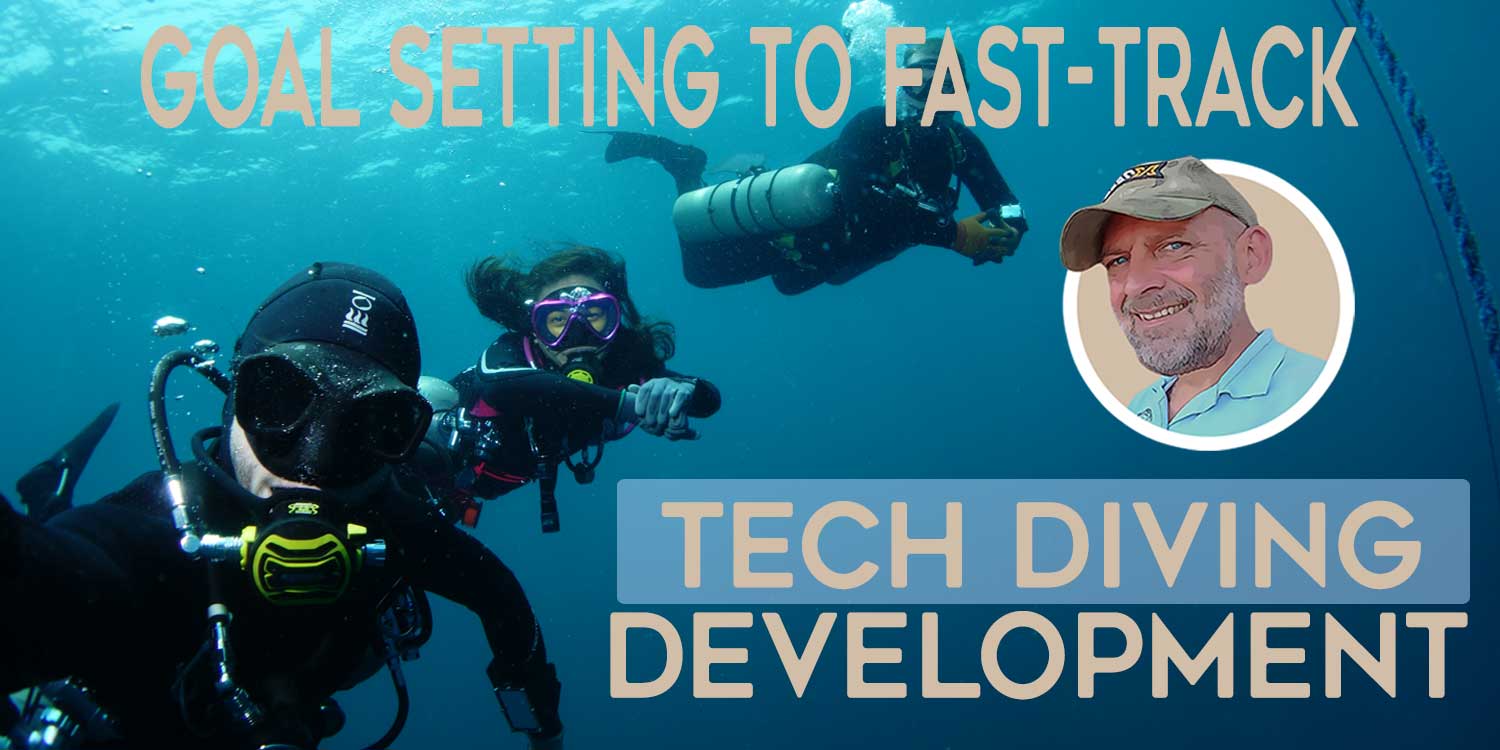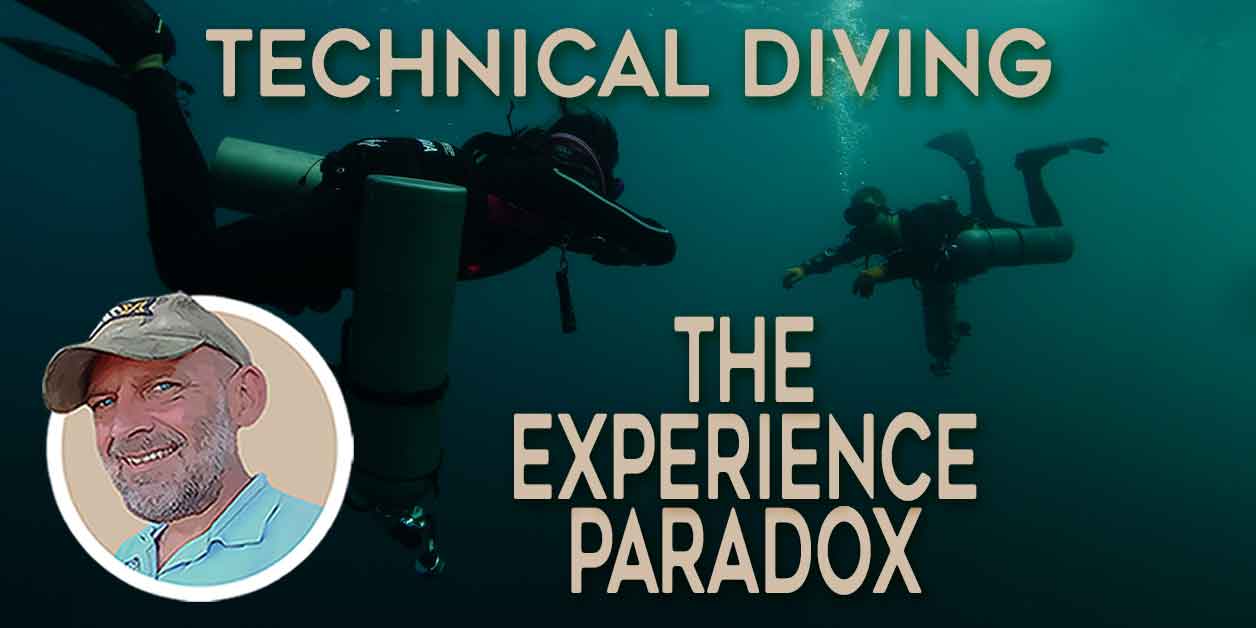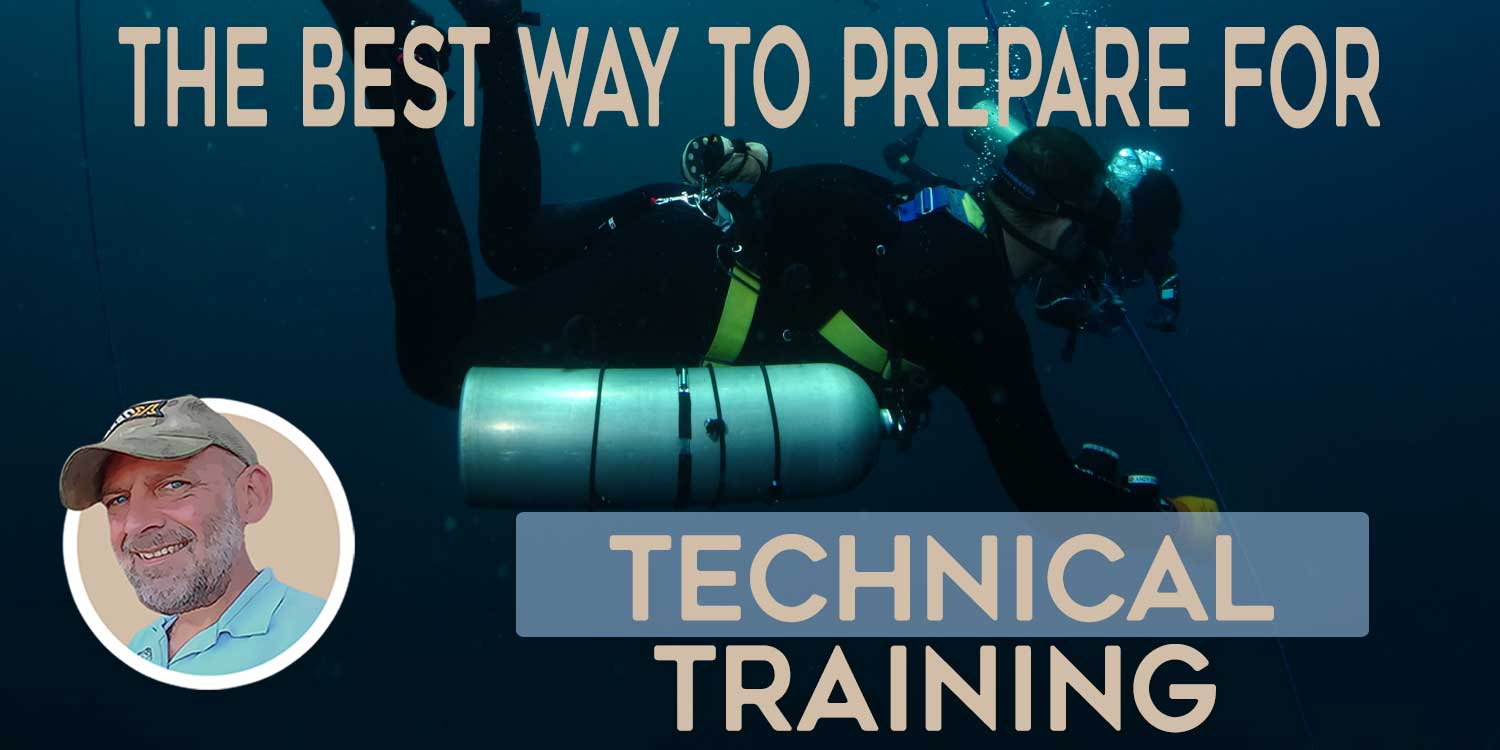Top-10 tips: How to prepare for technical diving training
Technical diving training is an enjoyable challenge. But achieving success on your first tech course is easier if you have prepared well. Reduce the risk of failing technical diving training with these essential top-10 tips to prepare for your course!
I have been teaching technical diving courses for nearly two decades. Of all those challenging courses, the one I see students struggle the most with is entry-level tech. For example, RAID Deep40, PADI Tec40, or an Advanced Nitrox course. The first step into technical diving is the hardest.
Why do students struggle in technical diving training?
Many students struggle in technical diving training because of raised performance standards.
Recreational scuba training is often experiential in nature and based upon diving within very forgiving safety parameters. Consequently, the performance requirements demanded on recreational courses are not challenging to most divers.
They are ‘everyman’ courses, designed to be achievable by the vast majority of divers. However, little or no significant hurdles exist to certification. There is also very little if any, planned progression in overall diving skill level from one course to another.
Why recreational diving training sometimes fails to refine core skills
In most scuba agencies, recreational diving courses do not progress from one ‘level’ to another ‘level’. As such, they are not based on progressive and assessed improvement in diving skills. A diver can drift from one recreational diving course, never actually needing to improve their competency.
All too often novice technical divers exhibit flawed foundational scuba skills;
- Buoyancy
- Trim
- Propulsion
- Stability and control
- Situational awareness
- Equipment familiarity
- Team diving skills.
- Dive planning
- Gas management
- DSMB deployment
These critical aspects are rarely developed to higher standards in the recreational diving curricula.
At best, deficiencies in these foundational skills dilute the efficiency of technical training through the need to do remedial work. At worst, they stop technical diving students from achieving the standards needed to qualify.
It’s no surprise that many divers emerge from the water on the first dive in shell-shocked disbelief. I had the same experience myself, years ago. Many of my students say initial technical training was one of the biggest challenges of their life. It shouldn’t be if they prepare themselves diligently.
Here are my ten tips to ensure an effective and seamless transition from recreational to technical diving:
1. Research technical diving training well in advance
Enrolling in a technical-level course should never be a spur-of-the-moment decision. There is a lot you can gain from effective research in advance of the training.
Youtube is crammed full of excellent training demonstration videos showing technical diving skills and standards. The internet, both blogs, and forums, is a goldmine of information and good advice. But when dealing with internet forums, do be wary of ‘internet divers’. Typically, they act authoritatively and give advice well beyond their experience.
Books to read before technical diving training
Books such as Mark Powell’s “Deco for Divers” and Steve Lewis’ “The Six Skills” provide a springboard into technical diving theory and mindset. There are even several free-to-download eMagazines; such as X-Ray Magazine and Tech Diver.
2. Understand the philosophical differences in technical diving training
There are a number of schools of thought when it comes to technical diving methodology. It’s helpful to identify the varying tech philosophies. In turn, assess the pros and cons of them in relation to your own preferred beliefs.
These philosophies encompass multiple issues such as;
- The level of standardization in diver equipment
- Approaches to gas selection
- Preferred methods of calculating deco, etc.
What technical diving training philosophies best suit you as an individual?
Are you the sort of person who enjoys a clearly-defined ‘path’ with little need for personal decisions? Or do you prefer having the flexibility to investigate multiple options and define your own personal preferences? Will you be diving in a single geographical area and a consistent team? Or will you travel extensively and often dive with strangers? Do you appreciate standardization or individuality?
In your initial stages as a technical diver, always maintain an open mind. Don’t succumb to hype, or elitism or get drawn into dogmatic thinking.
3. Find the best technical diving training instructor for you
Don’t walk into a random dive center and enroll in a technical course without knowing who your instructor will be.
You will spend a lot of money as a technical diver. But the best money you will ever spend is on your first instructor. They will set your technical diving foundations and shape your future progress.
Choose a technical diving instructor, not a dive center
Find the best technical diving instructor that you can. If necessary, travel to get the highest reputation that you can. Do so even if it costs more money in course fees, travel, or accommodation.
Additionally, research and interview prospective technical diving instructors. Ascertain their experience and activity within the technical diving community.
What questions should you ask a potential technical diving instructor?
- How frequently do they conduct technical dives?
- At what level?
- How often do they teach technical diving courses, and for how many years?
- Are they a tech diving community ‘mover and shaper’, or just another insta-instructor, card-collecting drone?
- Are they cutting-edge in a developing field… or an ‘old dog’ that stopped evolving years before?
- Are they truly passionate about technical diving, or is teaching technical diving just another income opportunity for them?
- What percentage of students do they fail, defer or provide remedial or extra training for?
- What is their policy if you don’t meet the necessary standards to qualify?
- What are those standards?
Trust me, a good tech instructor is one who won’t hesitate to withhold qualification if you can’t meet the standards.
Invest in quality technical diving training, don’t just pay for a plastic certification card
You should pay for the training, but qualification is something you have to earn. Instructors who hand out certifications to under-skilled students put lives in danger. Technical diving courses should never be limited to the ‘minimum requirement’ or ‘attendance’ based.
There has to be a very real element of assessment. In turn, that means failure should be a very real possibility.
Technical diving instructor reputation is important
A credible tech instructor will have a verifiable ‘footprint’ in the community. Reputation means a lot in technical diving circles. Be selective. Get the best instructor you can afford. Travel for excellence, if necessary.
Also, consider the instructor’s technical diving training agency. There can be differences between agencies that may have an influence on your choice.
Communicate with your future tech diving instructor and ascertain what their pre-course standards are.
Consult with your instructor before starting technical diving training. Any technical diving instructor worth their salt will encourage you to consult extensively over your pre-course preparations and equipment selection.
Their concern is that you attend the course with solid foundations they can progress from. They won’t want your technical training to be hindered by having to remediate skills deficiencies. When that happens, it preventd you from reaching high-performance standards necessary.
Prerequisites for tech training should be more than x, y, or z plastic certification cards. There should be a real and tangible foundational skill set that you have mastered before attempting a tech diving course.
4. Practice your fundamental scuba skillset before technical diving training starts
You should aim to put aside some time to develop and improve your buoyancy, trim, propulsion, static stability, and situational awareness.
No matter how good you think you are, technical diving training will place great demands on your task loading. That task loading will degrade any other existing skill that isn’t firmly ingrained, unconscious, and automatic.
Why are fundamental scuba diving skills important to refine?
You might have the ability to hover in stable horizontal trim for 10 minutes with +/- 50cm deviation. But how much focus does it demand?
Could you still achieve those standards when task-loaded with new skills? Such as, shut-down drills, mask-changing, DSMB deployments, and manipulating deco cylinders, or gas changes?
Even small skills, such as clipping and unclipping bolt snaps onto D-rings can be ingrained into muscle memory prior to training. A lot of students suffer significant task-loading and frustration over small-scale routine skills. You can practice a lot of these without even getting into the water.
Learn the necessary tech diving hand signals – and apply them in your diving. Learn how to calculate your SAC rate/RMV and apply it by gas planning on every dive.
Read the manuals and practice with the computers
Research and purchase technical dive planning software in advance. Additionally, read the manual, learn how to use it; then use it to plan your recreational dives.
Your tech diving instructor can suggest drills for you to practice, along with standards you should aim to achieve. Also, make use of the numerous skill demonstration videos on Youtube. They role model what you should aim to perfect.
Start applying a technical diving mindset on your recreational dives
A technical diving mindset is about disciplined, precise, meticulous, accurate, methodical, and uncompromising diving. Even as a recreational diver, you can start developing this mindset in anticipation of technical diving.
Apply what you’ve already been taught, without compromise
How? Simply apply what you have learned thus far as a diver. Furthermore, follow the simple rules like ‘plan your dive and dive your plan’.
- Make your safety stops accurately within centimeters of your intended depth.
- Check your gauges frequently and be able to estimate accurately your remaining gas before you check the gauge.
- Maintain frequent communication with your dive buddy, confirm gas levels, remaining no-stop time, etc.
Be diligent and meticulous
Diligently plan your dives. Be detailed; include your allowable bottom time, predicted gas consumption, and navigation.
Stop just ‘flying your computer’ or delegating all responsibility to a dive guide. Perform diligent self and buddy checks before every dive.
5. Practice emergency and contingency diving skills
Take a little time to practice those ‘unused’ emergency skills; like air-sharing or mask removal/replacement on every dive.
Contrary to what many recreational divers assume, technical diving isn’t about cool gadgets. Furthermore, it is not about the complex gear or complicated drills.
In reality, it’s about the refinement and perfection of core diving skills. Technical diving training is about doing the fundamental stuff excellently.
6. Start diving with technical diving equipment to gain operation familiarity
Before making any purchases, research technical diving equipment options and principles comprehensively. Understand the principle of K.I.S.S. and the benefits of a minimalistic ‘less is more’ approach to technical diving.
Confirm your planned purchases with technical divers and absolutely do get your prospective instructor’s advice.
Get the right technical diving gear, and don’t waste money
Tech diving equipment is costly. For that reason, the last thing you want to do is purchase gear that needs to be replaced later.
Be skeptical of manufacturer’s claims or gimmicky marketing. There’s a lot of unsuitable equipment marketed to appeal to naïve and ill-informed aspiring tech divers.
‘Cool’ brand labels or the most expensive kit will absolutely not make you a better, or more respected technical diver. Don’t succumb to chasing an ‘image’ at the expense of functionality. It sucks to be labeled as one of those “all the gear, but no idea” divers.
Learn attention to detail with equipment skills
Once you’ve made equipment purchases, get familiar with using it. This reduces task loading and frustration once you start your tech diving course.
From the smallest bolt-snap to the most complex tech computer; practice with it at home until it becomes ingrained.
Don’t underestimate the advantage of committing micro/sub-skills into your muscle memory. It will make the complex tech skills so much easier once your tech course begins. Train with it in a pool, and utilize it on your recreational dives.
6. Read your equipment manuals… really
If it comes with a manual, read the manual. Then read the manual again. Especially for your diving computer!
Get your technical diving course manual early and complete the theory well in advance
The technical diving theory is extensive and considerably more in-depth than anything you’d encounter at recreational diving levels. Arrange to receive your tech course manual as early as possible. Furthermore, try to complete your theory study homework as soon as you can.
If you know the basics on arrival, your instructor can use available classroom time to expand upon those basics. In return, they can give you considerably more insight into the subjects covered.
Pre-study will also give you the opportunity to conduct further independent research on subjects that interest, or confuse, you. It’s a good idea to educate yourself beyond the scope, or views, of a single technical diving agency’s training material.
7. Get physically fit For technical diving training
Technical diving places far greater physical and mental demands on the diver than recreational diving does. Tech diving gear is heavier, bulkier and causes more water resistance. Technical dives are longer, colder and drain more energy.
Whilst you don’t need to be some sort of Adonis, or Amazonian, to be a technical diver. However, it is important to understand that physical stress and exhaustion play a large role in your ability. You have to be able to effectively learn, maintain mental focus, and retain psychological calm.
Strength, stamina, flexibility, and endurance all help on technical dives
Improving your strength, stamina, flexibility, and endurance has numerous benefits when your technical training starts. Excess body fat is a cited pre-disposing factor towards decompression illness.
Improving your cardiovascular system is believed to enable better off-gassing in decompression. Learn to hydrate yourself effectively, as a lifestyle habit. Adopt eating habits that provide you with effective fuel to sustain longer, more demanding periods of activity.
Technical diving at your physical and psychological limit means zero reserves for emergencies
You might be able to just struggle through a technical diving course at the limits of your fitness. But, that is a controlled environment and your instructor will pace it accordingly. What is your capability to cope when a real tech diving emergency arises?
8. Commit yourself to the pursuit of excellence as a technical diver
Technical diving training removes the cast-iron limitations and boundaries of the recreational diver. The horizon becomes very wide. You can go as far into technical diving as you wish.
Furthermore, each measure of progression you take must be underpinned by a determination. For that reason, find a passion to continually refine and improve your diving skills. Technical diving suits the humble perfectionist.
9. Avoid those who tempt you with instant-gratification
Yes, there’ll always be some cash-starved, plastic tech diving instructor. Of course, they will happily exchange your credit card details and give you a certification card.
Sure, you can bounce from tech course to tech course without developing an iota of skill improvement. It’s easy to find unethical tech instructors and throw money at them.
Of course, you can kit yourself from head-to-toe in all the ‘right’ equipment and brand labels.
It’s true, you can flout your qualifications and use all the right ‘buzzwords’ to boost your ego in dive centers. You can do that online also.
10. Only competency matters in the water
But don’t think you’ll fool anyone that matters. Certainly, don’t think you’ll fool Mr. Murphy. For sure, he will join you on a technical dive one day and illustrate the extent of your shortcomings.
Money can buy you anything, even technical diving certifications. But, you might pay a much steeper price if you haven’t earned those qualifications through hard work. Commit also your time, effort, and energy in the pursuit of excellence.
Start now. Strive to be an excellent diver at whatever certification level you are at.
Recommended reading when preparing for technical diving courses
Gas Management For Scuba Divers
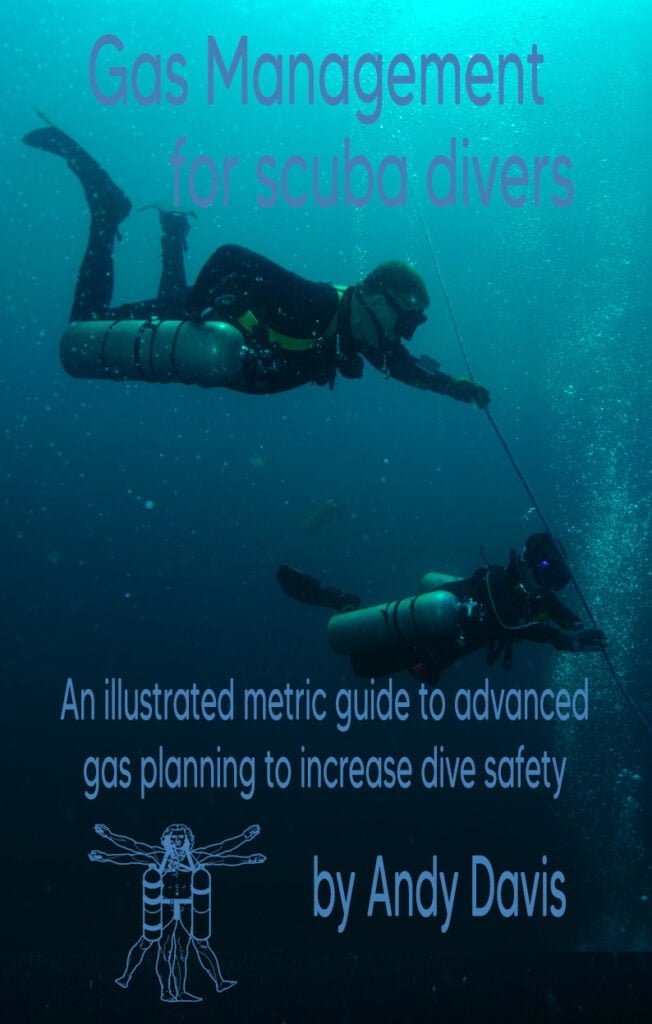
The comprehensive, illustrated, metric guide to advanced gas planning and management for safer scuba diving. Only $9!
60 Pages. Printable PDF format. Fully Illustrated.
About The Author

Andy Davis is a RAID, PADI TecRec, ANDI, BSAC, and SSI-qualified independent technical diving instructor who specializes in teaching sidemount, trimix, and advanced wreck diving courses.
Currently residing in Subic Bay, Philippines; he has amassed more than 10,000 open-circuit and CCR dives over three decades of challenging diving across the globe.
Andy has published numerous diving magazine articles and designed advanced certification courses for several dive training agencies, He regularly tests and reviews new dive gear for scuba equipment manufacturers. Andy is currently writing a series of advanced diving books and creating a range of tech diving clothing and accessories.
Prior to becoming a professional technical diving educator in 2006, Andy was a commissioned officer in the Royal Air Force and has served in Iraq, Afghanistan, Belize, and Cyprus.
In 2023, Andy was named in the “Who’s Who of Sidemount” list by GUE InDepth Magazine.
Purchase my exclusive diving ebooks!
Originally posted 2015-01-09 19:47:30.


